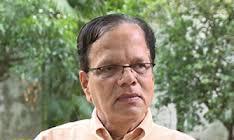Artificial Beach Project Meets Resistance from Environmentalists and Water Conservationists
Public Safety AlertsPosted by AI on 2025-09-07 09:04:03 | Last Updated by AI on 2026-02-05 02:58:51
Share: Facebook | Twitter | Whatsapp | Linkedin Visits: 12

Hyderabad's plans for a Rs 225 crore artificial beach project have encountered resistance from environmentalists and water conservationists, who question the sustainability and necessity of the idea. The project, proposed at Kothwalguda, spans 35 acres and includes attractions such as floating villas, adventure sports, wave pools, theatres, restaurants, cycling tracks, and play zones for children. While the government sees it as a tourism boost, critics say it could create more problems than it solves and highlight more pressing issues in the city.
Environmental concerns: Water experts, including Kalpana Ramesh, a noted water conservationist, voiced concerns about the massive amounts of water required for the project and the risks of chemically treating and disposing of water back into the environment. Hyderabadi's lakes are already shrinking, causing rising temperatures, water scarcity, and urban flooding. The water conservationist asks, "where will the water come from, and after treating it with chlorine and chemicals, are we going to pump it back into the ground, creating new problems in the name of entertainment?"
Alternative proposal: Environmentalist Prof. K Purushotham Reddy emphasizes the lack of public demand for the beach, citing more urgent issues like flooding streets during monsoons, poor air quality, congested roads, and underserved neighborhoods. He suggests that Hyderbad should restore its unique water heritage, such as the 6,000 stepwells (baolis) that once defined community life and biodiversity. Instead of pursuing fantasy projects, he encourages investing in cleaning the Musi River, restoring lakes, and celebrating the city's heritage.
Official response: Special Chief Secretary (FAC) of the Department of Tourism and Culture, Telangana, Jayesh Ranjan, stated that the proposal is still under review and emphasized that the government is cautiously supportive of the concept. He acknowledged the lack of beach tourism in the region and emphasized the potential to attract tourists who enjoy beach holidays. However, he also noted that the city's real needs, such as cleaned streets during monsoons, well-maintained air, spacious roads, and developing poor areas, should be addressed.
Conclusion: The artificial beach project in Hyderabad sparks a debate between tourism promotion, environmental sustainability, and addressing prevailing urban issues. With shrinking lakes and increasing flooding, water conservationists urge policymakers to prioritize the restoration of the city's natural water sources. Amidst these discussions, officials remain cautiously optimistic about the project, stating that urban needs remain a consideration during the review process.
Search
Categories
Recent News
- Apple's iPhone 18 Pro: A Refinement of the Familiar
- Devastating Floods in Morocco: A Humanitarian Crisis Unfolds
- Massive Development Boost for Nellore Rural
- Cheetahs' Homecoming: India's Wildlife Restoration Milestone
- Sonam Wangchuk's Prolonged Detention: A Troubling Injustice
- Hyderabad Fights Back: A City's Cybercrime Awareness Crusade
- Andhra Pradesh's Zonal System: A Hurdle in District Formation
- Hyderabad's Traffic Wings Get a Boost with IPS Officer Reshuffle
Popular News
- Navigating IPO Market Dynamics Amid Volatility and Regulatory Changes
- Massive Worldwide Microsoft Outage Disrupts Multiple Sectors
- Panjapur Bus Stand to Reshape TNSTC Routes
- తెలుగుదేశం పార్టీ - పేదరికాన్ని నిర్మూలించడంలో వాగ్దానం
- Universities Embrace Remote Learning Technologies Amidst Ongoing Pandemic